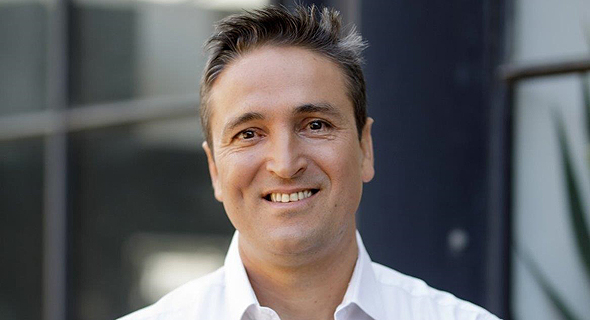Opinion
The recent escalation is a reminder that technology wins wars
The IDF should invest its resources in acquiring automation systems that will turn it into the most technologically advanced military on earth, writes Harel Tayeb, CEO of Kryon
14:4603.06.21
We have seen wide coverage and discussion around the significant efforts of corporations and organizations to automate business processes in order to maximize profits and increase productivity. While the IDF has already incorporated different technologies that were developed in the Startup Nation, we are seeing more and more integration of these homegrown state-of-the-art technologies being adopted.
 Harel Tayeb, CEO of Kryon. Photo: Kryon
Harel Tayeb, CEO of Kryon. Photo: Kryon
Managing military units during wartime is extremely complicated, perhaps the most complex form of management. Military commanders must make decisions quickly and operate under tremendous pressure, knowing that every mistake can be detrimental. Integrating artificial intelligence-based automation systems can significantly improve the IDF’s management abilities by increasing precision and allowing commanders to make data-based decisions.
 Harel Tayeb, CEO of Kryon. Photo: Kryon
Harel Tayeb, CEO of Kryon. Photo: Kryon In many modern enterprise businesses, processes such as reading documents, data aggregation, and data analysis are done by artificial-intelligence-based systems. Significant operational and intelligence activities of the IDF are heavily based on information analysis and pattern recognition. These efforts are currently done by soldiers, in an ineffective way that doesn’t suit the modern battlefield. To be more precise and accurate, the IDF must invest more resources to automate these processes, or at least some of them.
Automation technologies can sometimes replace human forces specializing in surveillance, reconnaissance, and information collection. Israeli tech companies offer computer vision systems that train computers to accurately identify and locate objects. These artificial-intelligence-based machines outperform humans: they are more accurate, they can perform tasks tirelessly and around the clock. The modern battlefield will become a hybrid mix of technologies and people – computers will analyze data, and commanders will use it to make informed decisions. Incorporating advanced technology will allow the IDF to enhance efficiency, improve performance and increase precision – avoiding unnecessary loss or damage to civilian populations.
Related Stories:
- Goodbye cybersecurity, hello CalmTech: How Israeli tech is transforming mental wellness
- Dealing with the problem of food security in the world
- Are we reliving the past? Term sheet déjà vu
Robots and artificial intelligence will play a significant role in the modern battlefield. In a few years, if IDF troops cross the border into Gaza, they will fight shoulder to shoulder with robots. Robots will replace soldiers, especially performing dangerous missions, such as being the first to cross the border and enter the battleground, saving the lives of IDF soldiers. As the IDF invests in developing military robots, it will add a transformative tool to its toolbox. Such tools could enable the Israeli military to perform tasks that now seem imaginary.
Throughout the recent escalation, Hamas also revealed surprising technological advancements, considering its limited resources as a terror organization. Hundreds of rockets fired by Hamas towards Israel were launched automatically at a push of a button. These automatic shooting capabilities together with Hamas’ ability to shoot at a certain time to a specific location, reflect its noteworthy technological development.
The next round is likely to be more complicated than this one: it might require fighting on all fronts against terror organizations with advanced technological capabilities, including cyber. Now, as the ceasefire took place, the IDF should invest its resources in acquiring automation systems that will turn it into the most technologically advanced military on earth.
Harel Tayeb is the CEO of Kryon. Kryon is an innovator in enterprise automation, offering a unified platform that encompasses Process Discovery and Robotic Process Automation (RPA).



